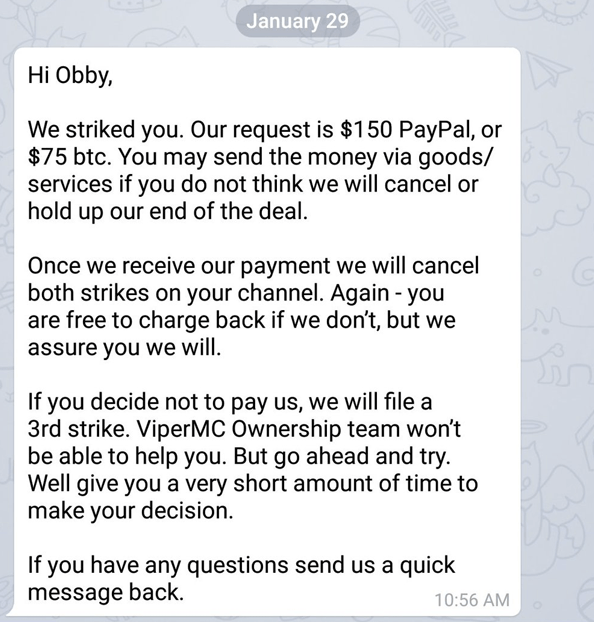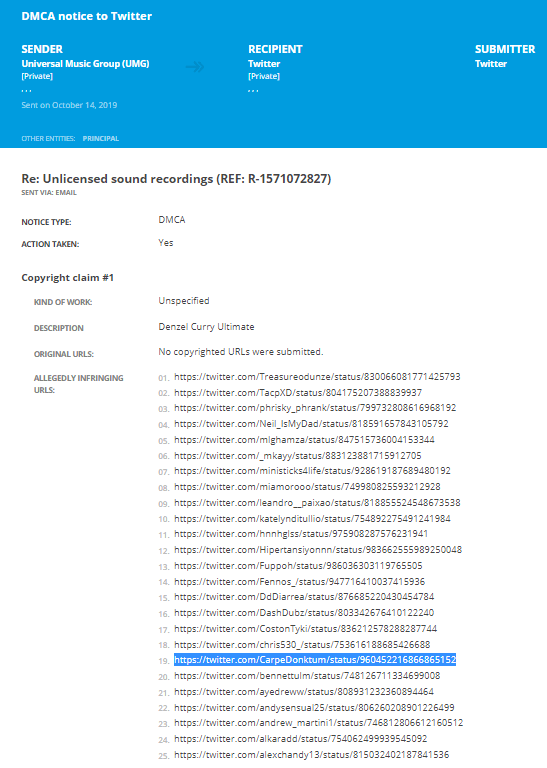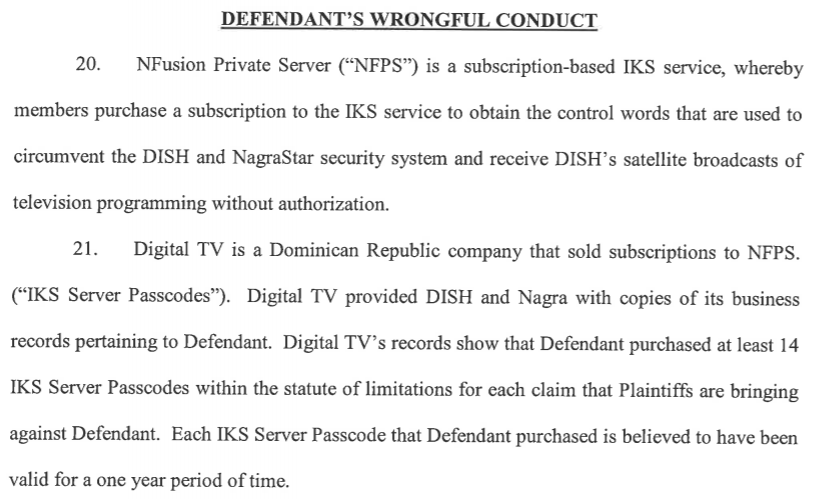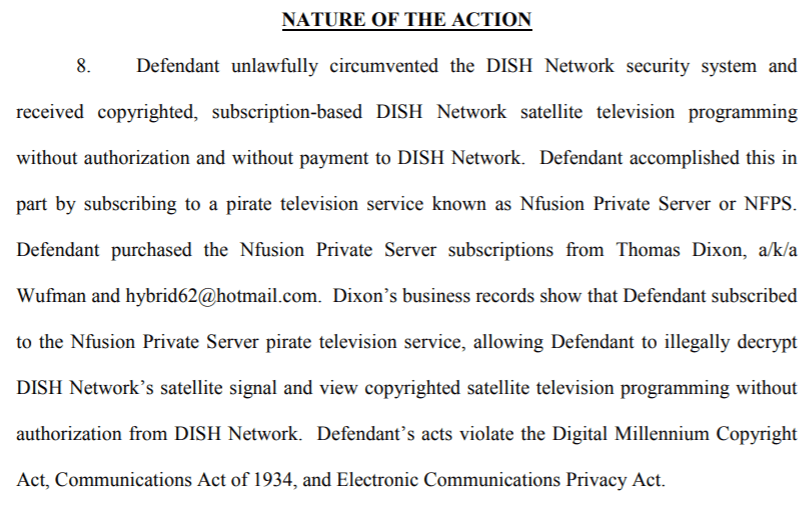
A group of movie companies, operating under the parent company Millennium Funding, has broadened its anti-piracy efforts over the past year.
Where the makers of films such as Hellboy, Hitman’s Bodyguard, and Mechanic: Resurrection, previously focused on individual pirates, they’re now targeting site owners as well.
Through various copyright infringement lawsuits and DMCA subpoenas, the companies targeted prominent players in the piracy ecosystem, ranging from Popcorn Time through YTS, to Showbox and MKVCage.
The case against MKVCage, filed last month, seemed to have had some effect. Not long after the complaint was submitted to a Hawaii District Court, MKVCage became unreachable. At the same time, the uploader stopped pushing torrents to other sites as well.
As is often the case when sites disappear, it didn’t take long for clones and scammers to jump in. Several unofficial MKVCage sites profited from the disappearance and fake MKVCage torrents were circulated as well, often bundled with malware.
However, more recently a site popped up that seemed more legitimate, MKVCage.nl.
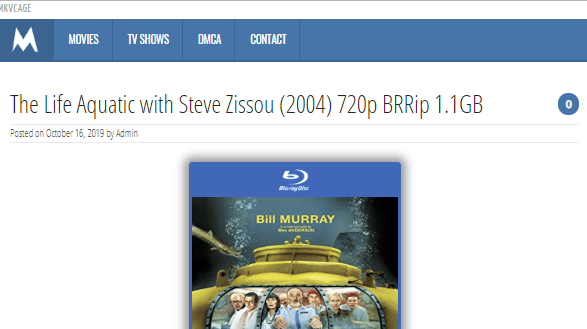
This .nl domain has identical posts of older MKVCage releases. On top of that, it publishes new movies and TV-shows, which also appear on the MKVCage uploader accounts at other torrent sites such as ETTV and 1337x.
What has changed is the formatting of the release notes, which no longer mention the old domain name MKVCage.com. This makes sense, as that’s no longer operational, but the new domain isn’t promoted either.
While we can’t be 100% sure that the new site is operated by the same person(s), most signs point in that direction. Many MKVCage followers are also convinced that it’s the official resurrection. This includes the aforementioned filmmakers who are going after the operator.
In a new filing submitted at the Hawaii District Court this week, HB Productions (Hellboy) informs the Court about the disappearance of MKVCage.com and the apparent resurrection at MKVCage.nl.
The movie company believes that MKVCage is operated by a person named Muhammad Faizan, who allegedly took the .com domain offline and removed his Gmail address after being informed about the legal action.
“Defendant Faizan took down his website Mkvcage.com upon being notified of the present litigation. He further deleted the email address ‘[email protected]’ that he used when registering mkvcage.com and various other domains with the domain register Namecheap and to communicate with Plaintiff’s counsel,” the movie company’s attorney writes.
The movie company also noticed the domain change and believes that the MKVCage.nl site is being operated by the same person.
“Defendant Faizan has since begun operating a new website ‘mkvcage.nl’ where he promotes and distributes torrent files of motion pictures such as Hitman’s Bodyguard and Mechanic: Resurrection that are owned by Plaintiff’s parent company Millennium Funding, Inc. or affiliates thereof with the same misleading language.”
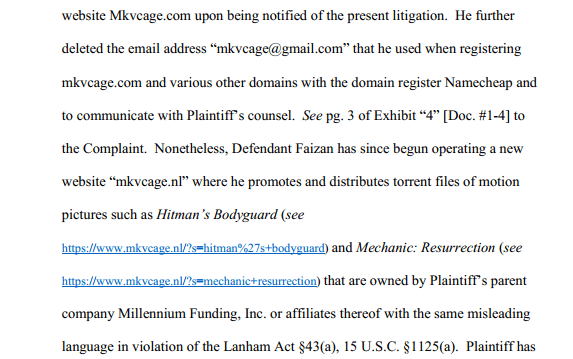
As the legal action continues, HB Productions continues to look further into the personal details of the alleged operator. In the latest filing, it points out that Faizan is employed at a Pakistani mobile phone repair shop, which apparently helps customers to access HD movies.
“Plaintiff has further discovered that Muhammad Faizan’s employer ‘HMA Mobiles & Computers’ provides a service of downloading and installing HD movies to the devices of individuals,” the company’s attorney writes (pdf), without saying anything about the legality of this activity.
TorrentFreak reached out to the MKVCage account at a popular torrent site to find out more about the new site and the allegations made by HB Productions, but at the time of writing, we have yet to hear back.
It’s clear, however, that while the MKVCage site is back, the legal troubles are not over yet.
Source: TF, for the latest info on copyright, file-sharing, torrent sites and more. We also have VPN reviews, discounts, offers and coupons.





